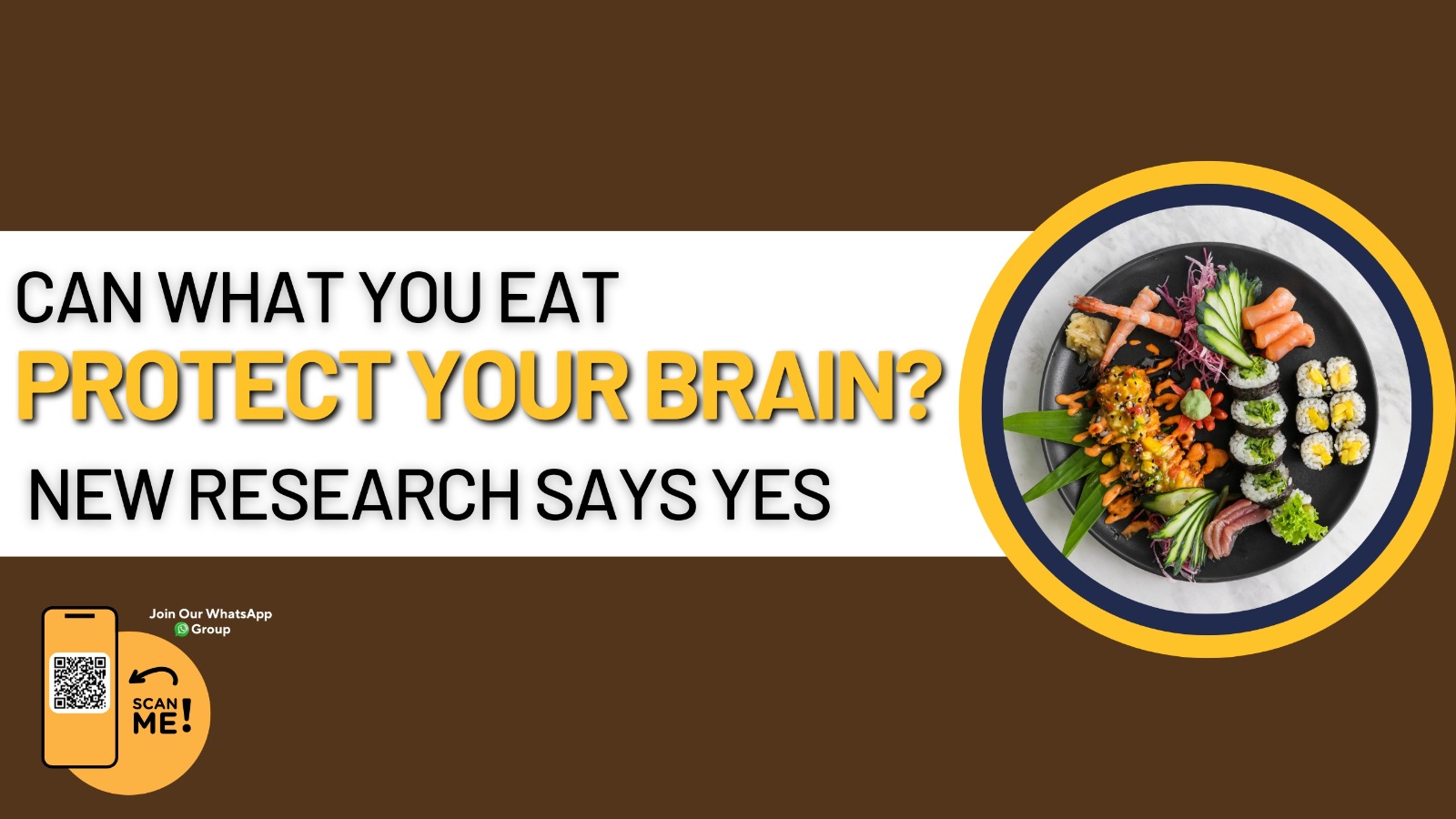Understanding Nutrition, Cognition, and the Future of Integrative Brain Health
“In every spoonful, a signal- to heal or to harm.”
A saying modern neuroscience now echoes.
Cognitive decline, dementia, and neurodegenerative conditions like Alzheimer’s aren’t distant problems anymore. They’re growing faster than ever, impacting families and health systems across the world, including India. But what if we could slow this brain deterioration down… with what’s on our plate?
What the Latest Research Reveals
A recent long-term study of nearly 960 older adults has revealed something powerful:
People who consumed more flavonol-rich foods experienced up to 30% slower cognitive decline over a 7-year period.
Flavonols are natural compounds found in everyday foods like:
- Kale, spinach
- Apples
- Berries
- Onions
- Green and black tea
The most neuroprotective flavonols observed in the study were:
Kaempferol, Quercetin, and Myricetin; all plant compounds long known in Ayurveda and now validated by biomedical science.
But the Damage of the Modern Diet Is Real
On the flip side, the same research shows that ultra-processed foods (UPFs): think packaged snacks, sugary drinks, processed meats were associated with a 50% higher risk of dementia, especially vascular dementia. UPFs can cause chronic inflammation, insulin resistance, oxidative stress. All of which can damage the brain’s vascular integrity and memory centers.
But here’s the most actionable part:
Replacing just 10% of ultra-processed foods with whole, unprocessed foods reduced dementia risk by nearly 20%.
What This Means for AYUSH Physicians and Students
This is the moment to connect the dots between ancient wisdom and modern research.
We’ve always known that food is medicine. Now, global evidence supports the neuroprotective role of herbs, fruits, and natural compounds. For practitioners and students of Ayurveda, Yoga & Naturopathy, Unani, Siddha, and Homeopathy, this research presents three key opportunities:
1. Update Clinical Guidance
Move beyond symptom treatment. Start integrating dietary assessments and flavonol-rich meal plans into patient care. Recommend lifestyle swaps that patients can realistically follow.
2. Bridge Research and Tradition
Flavonols like quercetin (found in onions and amla) and kaempferol (found in Tulsi and spinach) are not new to us. But now we can explain their mechanisms with terms like “anti-inflammatory,” “antioxidant,” and “neurovascular protector.” This builds clinical credibility and patient trust.
3. Be at the Forefront of Brain Health
India needs integrative physicians trained in both ancient principles and modern neurobiology.
This is where the AAYM Fellowship Program comes in.
Introducing: The AAYM Fellowship in Yoga and Integrative Medicine
If you’re a research student, medical professional, or AYUSH physician who wants to turn evidence into expertise, this fellowship is for you.
What You’ll Learn:
- Scientific validation of yogic and nutritional principles
- Evidence-based interventions for brain, metabolic, and immune health
- Research interpretation and clinical translation
- How to create case-based protocols using modern diagnostics and traditional tools
Apply today and be a leader in the future of brain health.
Final Thoughts
Flavonols aren’t just a new trend. They’re a bridge,a living example of how ancient plant wisdom meets modern neurology. The food we eat isn’t just feeding the body; it’s sculpting the mind.
For AYUSH systems to stay relevant and rise, we must speak the language of evidence while honoring the roots of tradition.
Let your practice evolve. Let your research have impact. Let your knowledge heal.
Reference:
https://reference.medscape.com/viewarticle/984606
____________________


